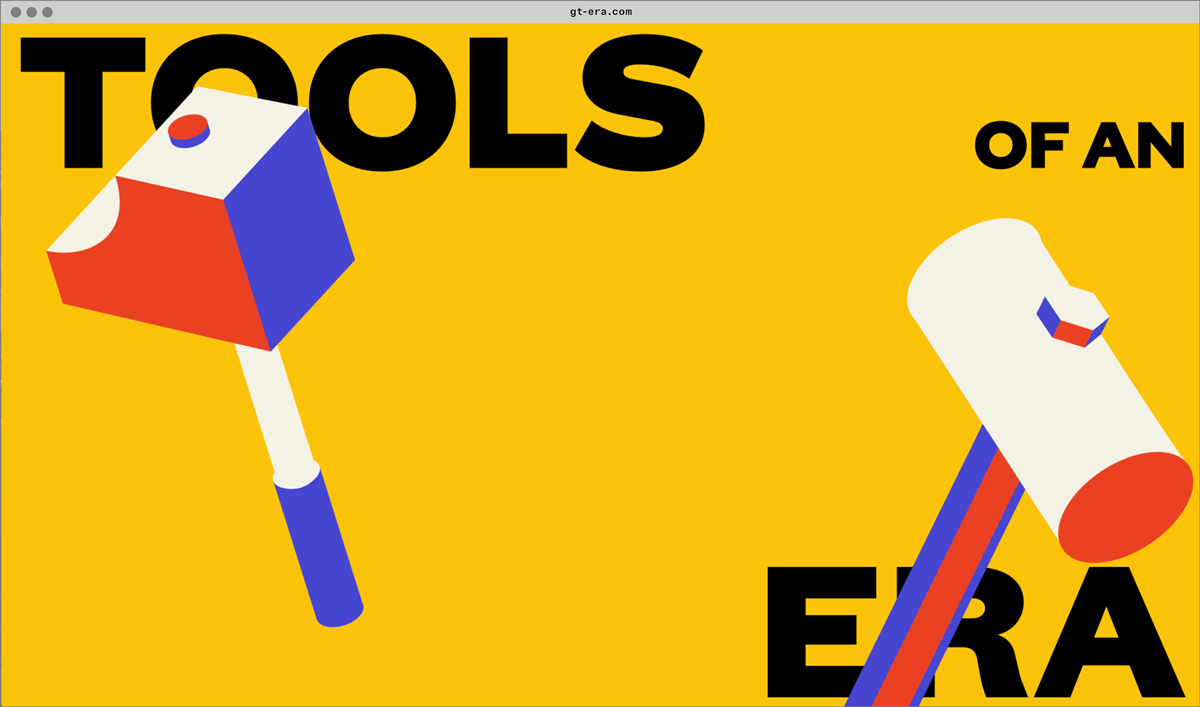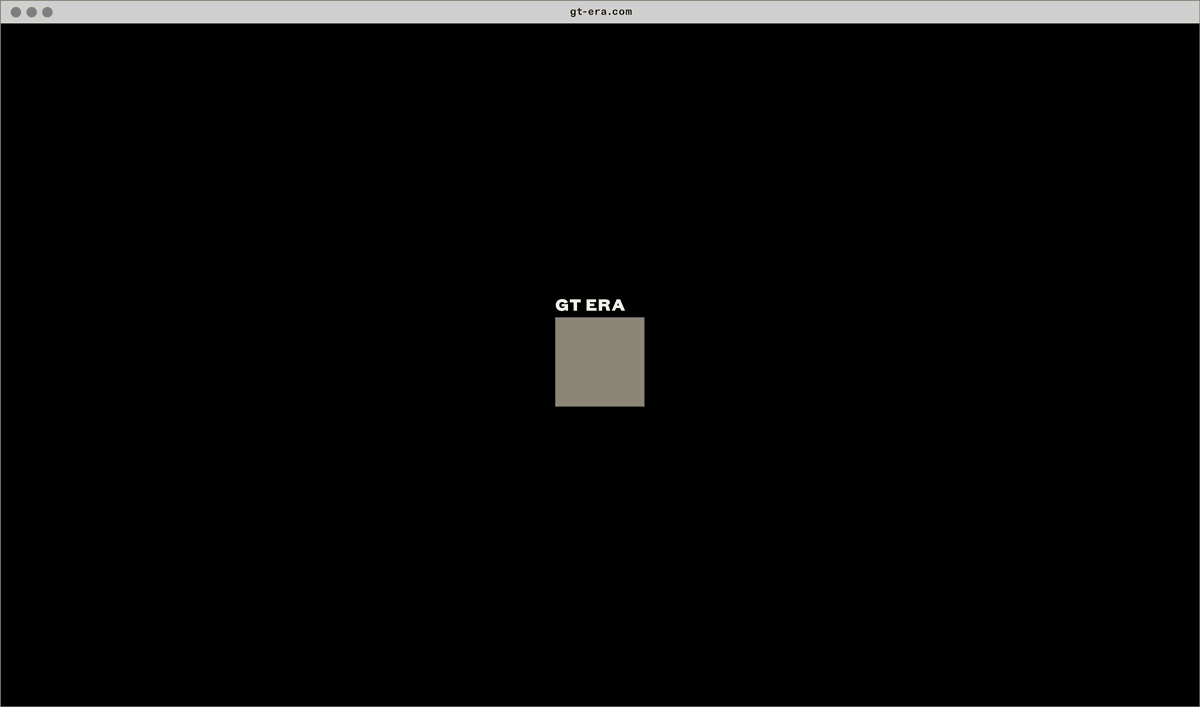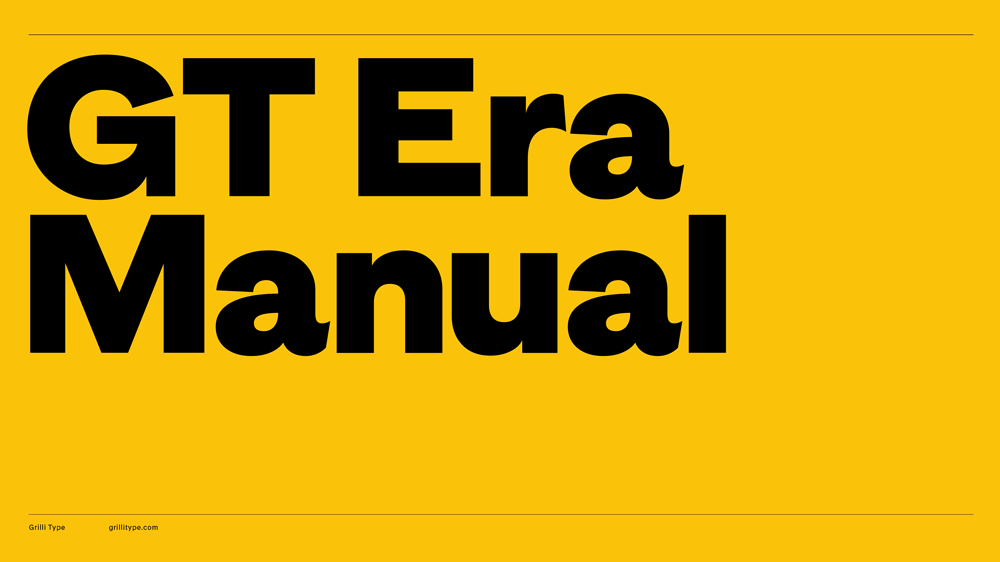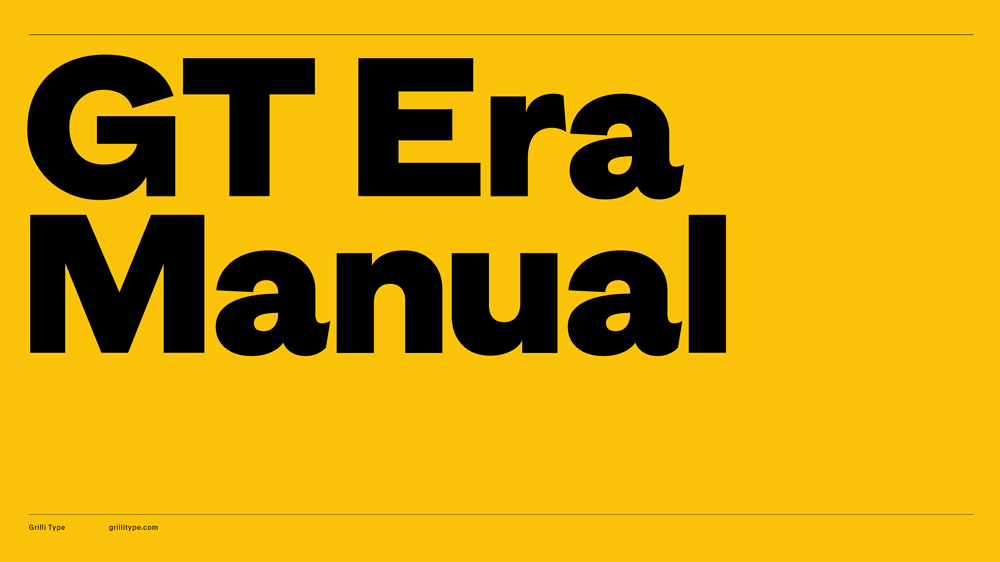GT Era
Family overview
- Display
- Thin Oblique
- Light Oblique
- Regular Oblique
- Medium Oblique
- Bold Oblique
- Heavy Oblique
- Black Oblique
- Text
- Thin Oblique
- Light Oblique
- Regular Oblique
- Medium Oblique
- Bold Oblique
- Heavy Oblique
- Black Oblique
Subfamilies
- Display ThinBei der Betrachtung der Abbildungen dieses Buches vergegenwärtige man sich: Die knappe Ausnutzung von Zeit, Raum, Stoff und Geld in Industrie und Wirtschaft bestimmt entscheiden die Faktoren der Gesichtsbildung für alle modernen Bauorganismen.
- Display Thin ObliqueIn 1919, I lived in Vienna, lost among the depressed conformists of the postwar period. Coming from a farm in the agricultural center of Hungary, I was less intrigued with the baroque pompousness of the Austrian capital than with the highly developed technology of industrial Germany.
- Display LightThey tested materials for qualities such as color, texture, structure, resistance to wear, flexibility, light refraction and sound absorption.
- Display Light ObliqueThe ethical necessity of the New Architecture can no longer be called in doubt. And the proof of this—if proof were still needed—is that in all countries Youth has been fired with its inspiration.
- Display RegularIt is evident, therefore, that the height-limit imposed by regulations is an irrational restriction which has hampered evolution in design.
- Display Regular ObliqueEven I was gripped by a kind of timidity bordering on fear when it came to leaving “the world of will and idea”, in which I had lived and worked and in the reality of which I had believed.
- Display MediumLine Diagram 25: Linear structure of the picture “Little Dream in Red” (1925) by Kandinsky, Wassily.
- Display Medium ObliqueBei der Betrachtung der Abbildungen dieses Buches vergegenwärtige man sich: Die knappe Ausnutzung von Zeit, Raum, Stoff und Geld in Industrie und Wirtschaft bestimmt entscheiden die Faktoren der Gesichtsbildung für alle modernen Bauorganismen.
- Display BoldThe ethical necessity of the New Architecture can no longer be called in doubt. And the proof of this—if proof were still needed—is that in all countries Youth has been fired with its inspiration.
- Display Bold ObliqueRecognized for his invention of bicycle-handlebar-inspired tubular steel furniture, Breuer lived off his design fees at a time in the late 1920s and early 1930s when the architectural commissions he was looking for were few and far between.
- Display HeavyNot the single piece of work, nor the highest individual attainment must be emphasized, but instead the creation of the commonly usable type, development toward “standards”.
- Display Heavy ObliqueOne proceeds by way of the uniformly compressed circle, of which the oval is a result, to free basic planes. These are, to be sure, without angles but, just as is possible in the case of angular forms,
- Display BlackERNST MAY, Mitarbeiter KAUFMANN, Frankfurt am Main, Siedlung Praunheim bei Frankfurt am Main (1926)
- Display Black ObliqueIt is evident, therefore, that the height-limit imposed by regulations is an irrational restriction which has hampered evolution in design.
- Settings
Typeface information
GT Era reimagines the warmth and idiosyncrasies of early grotesk typefaces for our own era. These pre-modernist tools were being pushed to their extremes in the radical designs of the modernist movements—like Bauhaus and De Stijl—of the period. The typeface shuns neutrality and embraces friction, championing recognition over uniformity and flavor over conformity.
Typeface features
OpenType features enable smart typography. You can use these features in most Desktop applications, on the web, and in your mobile apps. Each typeface contains different features. Below are the most important features included in GT Era’s fonts:
- SS01
- Alternate g
Painting
Typeface Minisite


- Visit the GT Era minisite to discover more about the typeface family’s history and design concept.

